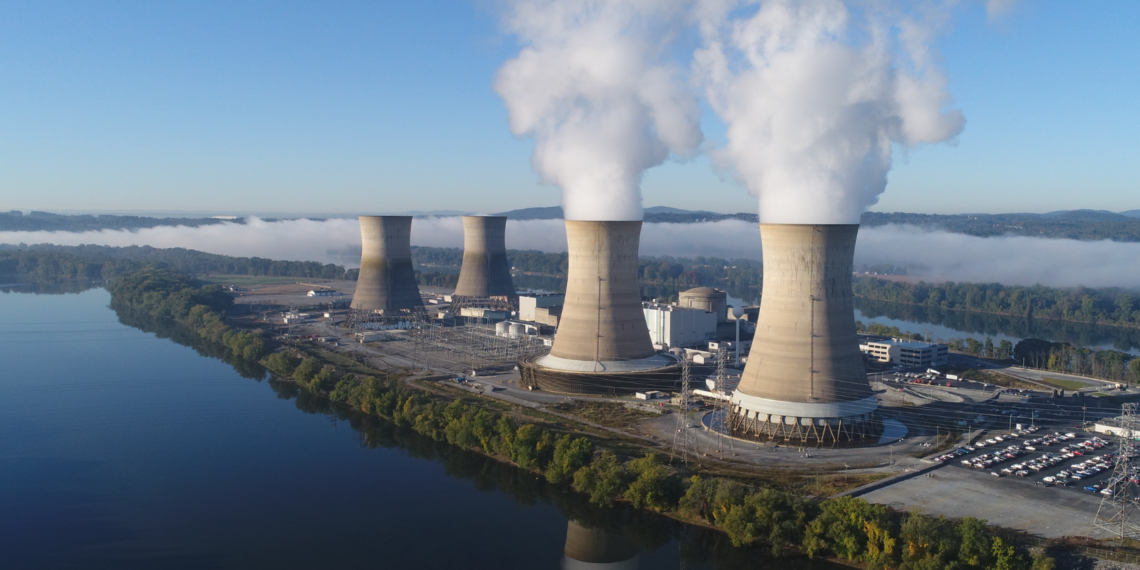by Nick Bowler, Daily Sceptic:

On September 20th there was an announcement by a little known energy company located in Baltimore Pennsylvania:
Constellation announced today the signing of a 20-year power purchase agreement with Microsoft that will pave the way for the launch of the Crane Clean Energy Centre (CCEC) and restart of Three Mile Island Unit 1, which operated at industry-leading levels of safety and reliability for decades before being shut down for economic reasons exactly five years ago today. Under the agreement, Microsoft will purchase energy from the renewed plant as part of its goal to help match the power its data centers in PJM use with carbon-free energy.
TRUTH LIVES on at https://sgtreport.tv/
There are two highly significant things about this announcement. The first is that the company operates a nuclear reactor at Three Mile Island, the site of one of the world’s biggest nuclear accidents. The reactor was due to be decommissioned in the next few years and the plant shut down completely, but it now has been given a new lease of life with this deal. If Constellation gains approval from its local authorities to go ahead with the project, it will truly be a turning point for the future of nuclear energy.
The second significant fact is that the purchaser of the entire output of this reactor for the next 20 years is Microsoft. The technology giant will build a new plant to develop AI nearby, and it will need the output of a nuclear reactor to guarantee the energy requirements of the project.
The anticipated huge surge in energy demand from this sector (all of which has to be in the form of electricity) is prompting AI companies to make deals with energy companies to secure their slice of the cake in a world where energy security is becoming less and less certain.
AI is set to surpass even the huge energy consumption requirements of digital crypto-currency transactions and storage.
It takes a very long time to build a new nuclear power station, so the spotlight is now turning to small modular reactors (SMRs) for a faster turnaround. These can be built and commissioned a great deal more quickly than conventional reactors, assuming of course that the political will is there to approve their construction in the first place.
There are many companies eyeing the opportunity presented by this new technology. Amongst others, Rolls Royce is getting in on the act – with an emphasis already on “clean and affordable”, tying the technology in to the green revolution in order to win Government backing.
All of this provides both a problem and a solution for the Labour Government’s drive towards Net Zero. It is becoming increasingly clear to many people that the limitations and costs of Net Zero are going to far outweigh the benefits of trying to reach the lofty goals contained in the eco-aspirations of the current Government.
In particular, as many articles on this website have attested to, it will be impossible to rely on renewable sources of energy without a constant power backup. As fossil fuels are ruled out, that leaves only one currently viable source at reasonable price levels: nuclear energy.
However, nuclear energy comes with a severe political taint due to a long history of fear-mongering and negativity, associated for decades with Labour party opposition to the Trident missile system.
The political activism group Campaign for Nuclear Disarmament (CND), which opposes all forms of nuclear energy, saw a surge in membership when Tony Blair announced plans to expand U.K. nuclear power capacity in 2007.
This rekindling of public anxiety at that time must contain a warning to the Labour Government when it comes to try to ‘sell’ nuclear to its supporters and the public. But how much choice will it really have in the matter? The catalyst for the change is coming from the AI revolution, which doesn’t look like it has any intention of being stopped in its tracks.
This is what Yann lecCun, the Chief AI Scientist at Meta had to say about the deal with Constellation:
AI datacentres will be built next to energy production sites that can produce gigawatt-scale, low-cost, low-emission electricity continuously.
Basically, next to nuclear power plants.
The advantage is that there is no need for expensive and wasteful long-distance distribution infrastructure.
Note: yes, solar and wind are nice and all, but they require lots of land and massive-scale energy storage systems for when there is too little sun and/or wind. Neither simple nor cheap.



